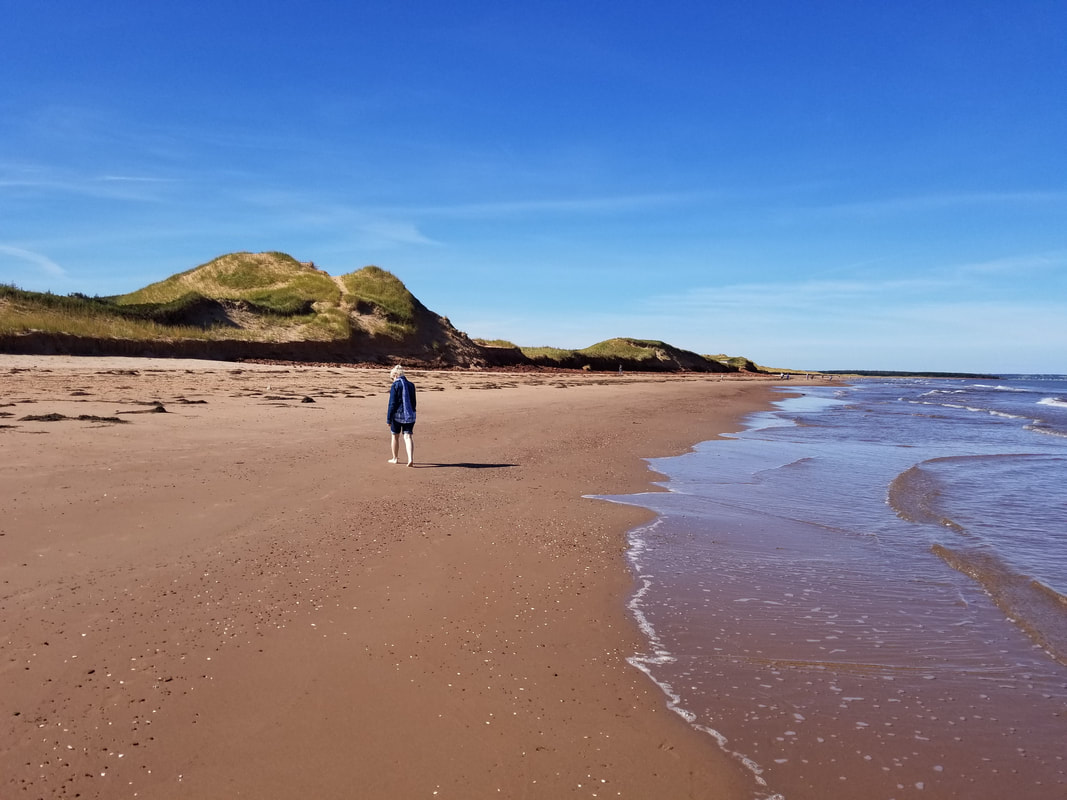|
By Sarah Nestell, LLMSW
May is National Mental Health Month and we asked the folks from Newaygo County Mental Health to provide us with a series of articles to help promote awareness of the resources available for those seeking help. In this fourth installment Sarah Nestell speaks to an issue affecting nearly 1 in 5 Americans. The Covid-19 pandemic has changed almost everything about our day to day lives, and it is affecting mental health in a BIG way. According to the National Institute of Mental Health, 19.1% of adults in the United States had some type of anxiety disorder in the past year. Further, they estimate that 31.1% of adults will experience any anxiety disorder at some point in their lives. In taking appropriate measures to keep our community safe and healthy, many are experiencing physical, social, and emotional isolation, all of which are risk factors for anxiety. The isolation may exacerbate symptoms already present, or potentially triggered unfamiliar feelings for the very first time. One of the common stigmas associated with anxiety, or any other mental illness, is that it is somehow less severe or debilitating than a physical illness, because symptoms may not be observable to others. The truth is, anxiety can be every bit as overwhelming as a physical illness. It's also quite common for symptoms of mental health to influence a person’s physical health (and vice versa!). For those who are unfamiliar, anxiety may be subtle and hard to identify at first. It manifests in many ways, presenting differently among different people. It’s possible you’ve experienced it but were unable to identify or name it. Indicators you or someone you know may be experiencing anxiety include: • Memory issues • Overthinking • Avoidance or emotional distance • Insomnia or fatigue • Sweating • GI irritation (stomach issues) • Rapid heartbeat • Headaches or other body aches • Overeating or not eating at all • Trouble breathing • Panic attacks • Needing assurance • Procrastination • Constant worrying • Lack of patience What is important to know is that anxiety is a normal reaction to stress. Our brains and our bodies are responding to trauma, something we have never experienced before and don’t know how to handle. I encourage you to regularly pause for a moment to have a “mental health check in”, just a few moments considering the following questions: • How am I feeling today? • What have I spent the most time and energy thinking about? • Am I tired? • When was the last time I ate a whole meal? • What has brought or will bring me joy today? • How am I speaking to myself? To others? Reflecting on these questions will create an awareness of how anxiety may be affecting you or your family. Maybe you feel like you’re not accomplishing much, or you don’t have as much energy to give, or maybe you feel restless, or sick. As we continue to press forward, remember that whatever you are feeling, it’s valid, and it’s normal. Let’s allow ourselves some grace, because we are worth it. Let’s allow grace for others, because they are too. Though the circumstances are definitely not ideal, I hope that from our experience during this pandemic we learn the importance of our mental wellbeing and how to care for it. As a reminder, our crisis line is available for anyone and can be accessed 24/7 by calling 231-689-7580; Newaygo County Mental Health is ready to care for you. The three previous articles https://www.nearnorthnow.com/the-pulse/self-care-for-improved-mental-health https://www.nearnorthnow.com/the-pulse/mental-health-month-taking-time-to-heal https://www.nearnorthnow.com/the-pulse/becoming-an-ally
0 Comments
Your comment will be posted after it is approved.
Leave a Reply. |
Letter to the Editor PolicyNear North Now welcomes original letters from readers on current topics of general interest. Simply fill out the form below. Letters submissions are limited to 300 words. Archives
July 2024
Categories |

 RSS Feed
RSS Feed